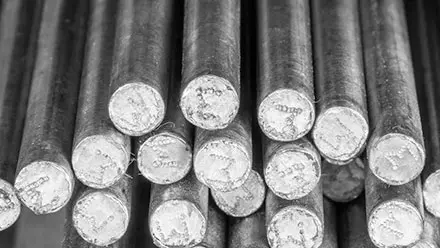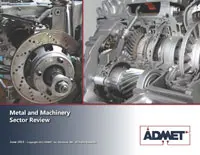

This report covers issues related to testing in the Metal & Machinery Sectors.
Highlights include:
- Metal Fabricators Efficiency Issues
- The struggle for manufacturers to become more effective
- Environmental concerns
- Alloy developers and their relationship with manufacturers
- Rising Energy costs
- Click Here to Download!
Mechanical Testing Solutions for Metals
Different machines or structures require different types of metals. The metal used in a bridge, for instance, is different from the metal used in a car fender. Each has varying mechanical properties which must be verified via testing to ensure safe use in the intended application. ADMET materials testing machines are used all over the world by companies who need to make sure their metal materials make the grade.
ADMET materials testing systems determine important characteristics of metals like elastic modulus, yield, elongation, reduction of area, n-value, R-value, Poisson’s ratio, fracture toughness plus many torsional properties. Regardless of which metals you work with or how you need to test them, ADMET offers accurate, reliable, rugged, easy to use testing systems that are made in the USA.
Common testing standards for metals include:
- ASTM A370 – Standard Test Methods and Definitions for Mechanical Testing of Steel Products
- ASTM A938 – Standard Test Method for Torsion Testing of Wire
- ASTM E8 – Standard Test Methods for Tension Testing of Metallic Materials
- ASTM E9 – Standard Test Methods of Compression Testing of Metallic Materials at Room Temperature
- ASTM E111 – Standard Test Method for Young’s Modulus, Tangent Modulus, and Chord Modulus
- ASTM E345 – Standard Test Methods of Tension Testing of Metallic Foil
- ASTM F519 – Standard Test Method for Mechanical Hydrogen Embrittlement Evaluation of Plating/Coating Processes and Service Environments
- Tension test per ASTM E8
- Testing a braided metal band
| Metals | Recommended Equipment |
|---|---|
| Testing System |


